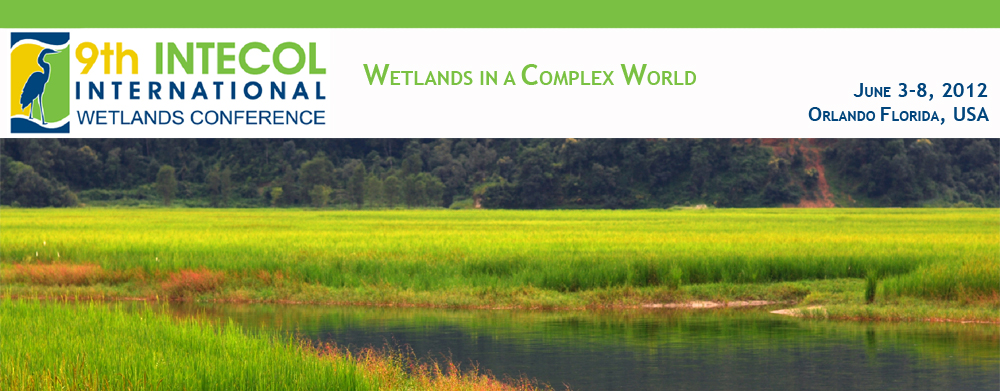

Dr. Thomas Armstrong | Dr. Richard Beilfuss | Dr Brij Gopal | Senator Bob Graham | Jan Květ
Jack M. Payne | Professor Stephen Polasky | Stefan Rahmstorf | Lynn Scarlett | Dave White
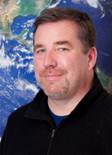 Dr. Thomas Armstrong joined the White House Office of Science and Technology Policy as the Executive Director of the U.S. Global Change Research Program, a $2.6 Billion annual program across thirteen different Federal agencies focused on understanding and responding to global change and its impacts. Prior to this, Tom served as the Department of the Interior’s (DOI) Senior Advisor for Climate Change and has been a key figure in the implementation of Secretary Salazar’s Executive Order on climate change (S.O. 3289), as well as in the development of the Department’s climate change-related policies, organizational elements and budget strategies. On the international front, Tom serves as the Chair of the Sustained Arctic Observing Networks (SAON) and also as the U.S. Head of Delegation to the Arctic Council’s Arctic Monitoring and Assessment Programme (AMAP). Dr. Armstrong also served as the Vice-Chair for Adaptation Science on the CENRS Subcommittee on Global Change. Prior to that, Dr. Armstrong was the Principal for DOI to the United States Global Change Research Program for six years. Some of his other responsibilities have included serving as the Senior Advisor for Global Change Programs at the U.S. Geological Survey, the DOI lead for the World Climate Conference, Associate to the Chair for development of the Committee on Earth Observation Satellites (CEOS) response to Global Climate Observing System (GCOS) Implementation Plan, a United States delegate for the United Nations Framework Council on Climate Change, advisor on DOI’s International Polar Year activities, a DOI principal to the CEQ-OSTP-NOAA Climate Change Adaptation Taskforce, and as Chair of the Science Committee for the Department of the Interior’s Climate Change Task Force. Tom has also participated in numerous testimonies and briefings to various Congressional Committees and high-level briefings for DOI at various international forums regarding climate change, adaptation and circum-Arctic activities.
Dr. Thomas Armstrong joined the White House Office of Science and Technology Policy as the Executive Director of the U.S. Global Change Research Program, a $2.6 Billion annual program across thirteen different Federal agencies focused on understanding and responding to global change and its impacts. Prior to this, Tom served as the Department of the Interior’s (DOI) Senior Advisor for Climate Change and has been a key figure in the implementation of Secretary Salazar’s Executive Order on climate change (S.O. 3289), as well as in the development of the Department’s climate change-related policies, organizational elements and budget strategies. On the international front, Tom serves as the Chair of the Sustained Arctic Observing Networks (SAON) and also as the U.S. Head of Delegation to the Arctic Council’s Arctic Monitoring and Assessment Programme (AMAP). Dr. Armstrong also served as the Vice-Chair for Adaptation Science on the CENRS Subcommittee on Global Change. Prior to that, Dr. Armstrong was the Principal for DOI to the United States Global Change Research Program for six years. Some of his other responsibilities have included serving as the Senior Advisor for Global Change Programs at the U.S. Geological Survey, the DOI lead for the World Climate Conference, Associate to the Chair for development of the Committee on Earth Observation Satellites (CEOS) response to Global Climate Observing System (GCOS) Implementation Plan, a United States delegate for the United Nations Framework Council on Climate Change, advisor on DOI’s International Polar Year activities, a DOI principal to the CEQ-OSTP-NOAA Climate Change Adaptation Taskforce, and as Chair of the Science Committee for the Department of the Interior’s Climate Change Task Force. Tom has also participated in numerous testimonies and briefings to various Congressional Committees and high-level briefings for DOI at various international forums regarding climate change, adaptation and circum-Arctic activities.
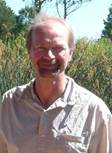 Dr. Richard Beilfuss has engaged in wetland conservation and restoration from a landscape perspective in Africa, Asia, and North America for more than 25 years. Beilfuss and colleagues spearheaded long-term term restoration efforts in the Lower Zambezi River and Delta of Mozambique, the Mekong Delta of Vietnam, and the Wisconsin River basin in the US. He has contributed to wetland research and management projects in the US, China, Nepal, Vietnam, Iraq, and more than a dozen countries in sub-Saharan Africa. He has a PhD in Land Resources, MSE in Civil and Environmental Engineering, and MSc in Water Resources Management from the University of Wisconsin-Madison.
Dr. Richard Beilfuss has engaged in wetland conservation and restoration from a landscape perspective in Africa, Asia, and North America for more than 25 years. Beilfuss and colleagues spearheaded long-term term restoration efforts in the Lower Zambezi River and Delta of Mozambique, the Mekong Delta of Vietnam, and the Wisconsin River basin in the US. He has contributed to wetland research and management projects in the US, China, Nepal, Vietnam, Iraq, and more than a dozen countries in sub-Saharan Africa. He has a PhD in Land Resources, MSE in Civil and Environmental Engineering, and MSc in Water Resources Management from the University of Wisconsin-Madison.
Beilfuss currently serves as CEO & President of the International Crane Foundation (ICF), a non-government, non-profit conservation organization headquartered in Wisconsin with offices in South Africa, India, and China. From 1993-2005, he developed and directed the International Crane Foundation/Endangered Wildlife Trust Africa Program, which received the Rolex Enterprise Award for their pioneering work in creating a network of conservationists across eleven range countries of the endangered Wattled Crane, a flagship species for sustainable water management. From 2005-2008 Beilfuss moved with his family to Mozambique to serve as Director of Scientific Services for the Gorongosa National Park Restoration Project under the Carr Foundation.
Beilfuss is an Adjunct Professor for the University of Wisconsin-Madison College of Engineering and the University of Eduardo Mondlane in Mozambique, where he teaches graduate courses on environmental flows for sustainable water management, and enjoys supervising students.
He is a Licensed Professional Hydrologist and was appointed to the Wisconsin State Examining Board of Professional Geologists, Hydrologists, and Soil Scientists.
Rich lives with his wife Katie (of the Wisconsin Wetlands Association) and their two sons, Ian and Theo, in Madison, Wisconsin. He is an avid runner, wetland-stomper, and dart-thrower, but not all at the same time. -- www.savingcranes.org
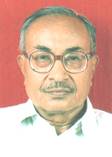 Dr Brij Gopal (born March 1944), former Professor of Environmental Science at the Jawaharlal Nehru University, New Delhi (1996-2009), is currently setting up a Centre for Inland Waters in South Asia under the aegis of the National Institute of Ecology. He studied Botany for his Master’s degree (Agra University, 1964) and obtained his Ph.D. in plant ecology from Banaras Hindu University, Varanasi (1968). After serving as a post-doctoral fellow in forest ecology, he taught at Agra College (1970-71) and Rajasthan University (1972-85) before moving as Associate Professor at the JNU in 1986. He was a Humboldt Fellow in Germany during 1982-83 and later, a Visiting Professor at the Geobotany Institute of Swiss Federal Institute of Technology, Zurich (1984).
Dr Brij Gopal (born March 1944), former Professor of Environmental Science at the Jawaharlal Nehru University, New Delhi (1996-2009), is currently setting up a Centre for Inland Waters in South Asia under the aegis of the National Institute of Ecology. He studied Botany for his Master’s degree (Agra University, 1964) and obtained his Ph.D. in plant ecology from Banaras Hindu University, Varanasi (1968). After serving as a post-doctoral fellow in forest ecology, he taught at Agra College (1970-71) and Rajasthan University (1972-85) before moving as Associate Professor at the JNU in 1986. He was a Humboldt Fellow in Germany during 1982-83 and later, a Visiting Professor at the Geobotany Institute of Swiss Federal Institute of Technology, Zurich (1984).
Dr Gopal’s major contributions cover the ecology of many aquatic and wetland plants including invasive species such as water hyacinth; community and ecosystem level studies of all kinds of aquatic ecosystems from high altitude lakes to floodplains, coastal lagoons and mangroves, assessment of aquatic biodiversity, economic valuation and conservation, restoration and management of rivers, lakes and wetlands in a river basin perspective. He considered also the traditional management by local communities, socio-economic aspects, climate change and issues related to policies and law in the context of integrated water resources management for sustainable development. Among the students working with him, 17 obtained their PhD degree and 12 students received MPhil degree. His 200 research / review papers and 40 authored or edited books include many in collaboration with eminent scientists such as R.E. Turner, Dennis Whigham, Robert G. Wetzel, B.C. Patten, Wolfgang J. Junk, W.J. Mitsch, Jan Kvet, David Mitchell and Max Finlayson among several others. He was one of the lead authors of the chapter on Ecosystems for the IPCC’s Fourth Assessment Report (2007).
As a member of many Committees of the Ministry of Environment & Forests, the Ministry of Water Resources, and several state governments, for their programmes on river, lake and wetland conservation, he has advocated the importance of catchments, floodplains, and environmental flows in the rivers, and the river basin approach to the management of water resources, largely based on his studies on river Yamuna. He was a Member of the Committee for drafting the Wetland Conservation and Management Rules, a member of EAC on mining projects, the expert group on lake conservation. He is a Member on the Council on Climate Change of the Govt of Himachal Pradesh.
He has been associated (as chairman and/or member of the Research Advisory Committees and Quinquennial Review Teams) with several Fisheries Institutes of the Indian Council of Agricultural Research. He organized the INTECOL’s first international conference on wetlands in New Delhi (1980) and has been associated with the wetland programs of many organisations, including UNESCO, UNEP, SCOPE, IUBS, ICIMOD and WWF. He serves on the editorial boards of several international journals on rivers, lakes and wetlands. He was Secretary General of the National Institute of Ecology for 3 decades (1978-2008) before being elected as its Vice President. Currently, Dr Gopal is a Member of the Board of Directors of the International Society for River Science, and the Executive Vice President of the International Society of Limnology (SIL).
His few awards include the International Fellow award (1997) of the Society of Wetland Scientists and the Naumann-Thienemann Medal (2004) of the International Association of Limnology (SIL). Currently, he is also a Member of the International Scientific Committee of the Brazilian National Institute for Wetland Science and Technology (INAU).
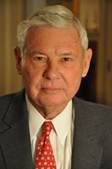 Senator Bob Graham is the former two–term governor of Florida and served for 18 years in the United States Senate. This is combined with 12 years in the Florida legislature for a total of 38 years of public service. Bob Graham retired from public service in January 2005, following his Presidential campaign in 2004.
Senator Bob Graham is the former two–term governor of Florida and served for 18 years in the United States Senate. This is combined with 12 years in the Florida legislature for a total of 38 years of public service. Bob Graham retired from public service in January 2005, following his Presidential campaign in 2004.
Bob Graham is recognized for his leadership on issues ranging from education, economic development, healthcare, environmental preservation and his service on the Senate Select Committee on Intelligence — including eighteen months as chairman in 2001–2002.
After retiring from public life, Senator Graham served for a year as a senior fellow at the Harvard Kennedy School of Government.
In May of 2010, Senator Graham was appointed by the President to serve as Co-Chair of the National Commission on the BP Deepwater Horizon Oil Spill and Offshore Drilling. This followed his service as a Commissioner on the Financial Crisis Inquiry Commission and as the Chairman of the Commission on the Prevention of Weapons of Mass Destruction Proliferation and Terrorism. Currently he serves as chairman of the WMD Center, a 501c3 not for profit research organization which continues the work of the Commission.
Senator Graham also serves as a member of the CIA External Advisory Board, as a member of the board of directors of several companies and as the chair of the Board of Overseers of the Bob Graham Center for Public Service at the University Florida.
Senator Graham is also the author of several books including “America: The Owner’s Manual,” which teaches the skills of civic participation, and “Keys to the Kingdom,” a novel of suspense which draws upon his background in government and intelligence.
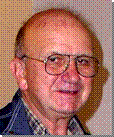 Jan Květ (born in 1933) is a well known ecologist who has worked in the field of wetlands ecology and, especially, production ecology of wetland plants and vegetation since 1965. He spent a lot of time and effort on organizing both national and international wetland-related research and conservation activities.
Jan Květ (born in 1933) is a well known ecologist who has worked in the field of wetlands ecology and, especially, production ecology of wetland plants and vegetation since 1965. He spent a lot of time and effort on organizing both national and international wetland-related research and conservation activities.
About 125 scientific publications contain the results of his research in wetlands ecology and that of other ecosystem types. Among the 10 books co-edited and co-authored by him are: Pond Littoral Ecosystems. Structure and Functioning (Springer, 1978), Studies on Shallow Lakes and Ponds (Academia, Prague, 1986), The Production Ecology of Wetlands (Cambridge Univ. Press, 1998) and Freshwater Wetlands and their Sustainable Future (UNESCO, 2002). He was co-founder of the Wetlands Working Group within the International Biological Programme (IBP), which was later transformed into INTECOL’s Wetlands Working Group. He co-organized the 2nd International Wetlands Conference at Třeboň, Czechoslovakia, in 1984.
Jan Květ, who graduated in plant anatomy and physiology from the Charles University in Prague in 1956 and got his Ph.D. in botany from the Czech Academy of Sciences in 1964,. For most of his professional life (1956-2002), he was employed by the Czechoslovak (Czech since 1993) Academy’s of Sciences Institute of Botany, successively at its branches in Průhonice near Prague, Brno and Třeboň. He has served on numerous both international and national committees, starting from the IBP, through INTECOL and SCOPE to UNESCO’s Man and Biosphere Programme (MAB) and the Ramsar Convention. In 1990-92, he was a member of the first freely elected Czech Parliament after the 1989 “Velvet Revolution”; in this capacity, he substantially contributed to the elaboration of the progressive Czech Republic’s Act on Nature and Landscape Conservation (1992). As faculty member of the University of Bohemia in České Budějovice since 1993, he has introduced the teaching of several new courses. Among them is also that on Wetlands Ecology; it was the first course of its kind in the Czech Republic.
His merits in scientific research, university teaching and civic nature conservation-oriented activities have been acknowledged both nationally and internationally. He is – together with the late Dagmar Dykyjová - recipient of the International Fellowship Award of the SWS and a life member of the SWS (2001), and was awarded the Recognition of Excellence by the Ramsar Convention (2008). He is also a member of the Learned Society of the Czech Republic and corresponding member of the Austrian Academy of Sciences.
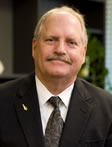 Jack M. Payne is the Senior Vice President for Agriculture and Natural Resources at the University of Florida. Appointed senior vice president in June, 2010, Payne is the administrative head of the Institute of Food and Agricultural Sciences (IFAS) which includes the College of Agricultural and Life Sciences, a portion of the College of Veterinary Medicine, the School of Natural Resources and the Environment, the School of Forest Resources and Conservation, the Florida Agricultural Experiment Station, 13 Research and Education Centers throughout Florida, the Florida Sea Grant Program, and the Florida Cooperative Extension Service with offices in each of the state’s 67 counties.
Jack M. Payne is the Senior Vice President for Agriculture and Natural Resources at the University of Florida. Appointed senior vice president in June, 2010, Payne is the administrative head of the Institute of Food and Agricultural Sciences (IFAS) which includes the College of Agricultural and Life Sciences, a portion of the College of Veterinary Medicine, the School of Natural Resources and the Environment, the School of Forest Resources and Conservation, the Florida Agricultural Experiment Station, 13 Research and Education Centers throughout Florida, the Florida Sea Grant Program, and the Florida Cooperative Extension Service with offices in each of the state’s 67 counties.
Prior to his current position he served as the Vice President for Extension and Outreach at Iowa State University and before that was the Vice President and Dean for University Extension at Utah State. Jack also has experience at two other land-grant institutions: Pennsylvania State University, where he served on the faculty of the School of Forest Resources, and, later, at Texas A&M University, where he served as a faculty member in the Fisheries and Wildlife Department.
After leaving Texas A&M University, Payne had a long career with Ducks Unlimited (DU), as their National Director of Conservation. While at Ducks Unlimited, some of his successes included the development of DU’s private lands program with agriculture, the development of a national conservation easement program and the expansion of their Mexican program to Central and South America.
Payne received his M.S. in Aquatic Ecology and his Ph.D. in Wildlife Ecology from Utah State University and is a graduate of the Institute for Educational Management at Harvard University. He is a tenured professor in the Department of Wildlife Ecology and Conservation at the University of Florida. Jack recently finished his term as the Chair of the Policy Board of Directors for the Board on Agriculture Assembly, Association of Public and Land-grant Universities.
 Professor Stephen Polasky holds the Fesler-Lampert Chair in Ecological/Environmental Economics at the University of Minnesota where he is a member of the Department of Applied Economics and the Department of Ecology, Evolution and Behavior. He is also a Faculty Fellow at the Institute on the Environment and a graduate faculty member of the Conservation Biology, Water Resources, and Natural Resource Science and Management Graduate Programs. He received a Ph.D. in Economics from the University of Michigan in 1986 and a B.A. from Williams College in 1979. He previously held faculty positions in the Department of Agricultural and Resource Economics at Oregon State University (1993-1999) and the Department of Economics at Boston College (1986-1993). He served as Senior Staff Economist for environment and resources for the President’s Council of Economic Advisers 1998-1999.
Professor Stephen Polasky holds the Fesler-Lampert Chair in Ecological/Environmental Economics at the University of Minnesota where he is a member of the Department of Applied Economics and the Department of Ecology, Evolution and Behavior. He is also a Faculty Fellow at the Institute on the Environment and a graduate faculty member of the Conservation Biology, Water Resources, and Natural Resource Science and Management Graduate Programs. He received a Ph.D. in Economics from the University of Michigan in 1986 and a B.A. from Williams College in 1979. He previously held faculty positions in the Department of Agricultural and Resource Economics at Oregon State University (1993-1999) and the Department of Economics at Boston College (1986-1993). He served as Senior Staff Economist for environment and resources for the President’s Council of Economic Advisers 1998-1999.
His research focuses on issues at the intersection of ecology and economics. His research interests include impacts of land use and land management on the provision and value of ecosystem services, natural capital, biodiversity conservation, and sustainability. He recently co-authored a book Natural Capital: Theory and Practice of Mapping Ecosystem Services. He contributed to the Millennium Ecosystem Assessment, a National Research Council Committee on valuing ecosystem services, a US EPA Science Advisory Board Committee on Valuing the Protection of Ecosystems and Services, and The Economics of Ecosystems and Biodiversity (TEEB). He has also worked on issues involving renewable energy, renewable and exhaustible resources, environmental regulation, and common property resources.
He serves on the Governing Board of the Natural Capital Project, the Science Advisory Board of the US Environmental Protection Agency, the Board of Directors for the Beijer Institute of Ecological Economics, and the Board of Directors and the Science Council of The Nature Conservancy. He is a University Fellow at Resources for the Future, a Research Fellow at the Beijer Institute of Ecological Economics, and a Research Associate in the Environmental & Energy Economics Program at the National Bureau of Economic Research. He was elected into the National Academy of Sciences in 2010. He was elected as a Fellow of the Association of Environmental and Resource Economists in 2011, the American Academy of Arts and Sciences in 2009, and the American Association for the Advancement of Science in 2007.
After studying physics at the Universities of Ulm and Konstanz and physical oceanography at the University of Wales (Bangor) Stefan Rahmstorf completed a thesis on general relativity theory. He then moved to New Zealand and obtained his PhD in oceanography at Victoria University of Wellington in 1990. His PhD work included a number of research cruises in the South Pacific.
After this he worked as a scientist at the New Zealand Oceanographic Institute, at the Institute of Marine Science in Kiel and since 1996 at the Potsdam Institute for Climate Impact Research. His work there focuses on the role of ocean currents in climate change.
In 1999 Rahmstorf was awarded the $ 1 million Centennial Fellowship Award of the US-based James S. McDonnell foundation. Since 2000 he teaches Physics of the Oceans as a professor at Potsdam University. Rahmstorf is a member of the Academia Europaea and of the German Advisory Council on Global Change (WBGU). He is also one of the lead authors of the 4th Assessment Report of the IPCC. In 2007 he became an Honorary Fellow of the University of Wales and in 2010 a Fellow of the American Geophysical Union.
He has published over 70 scientific papers (14 of which in Nature and Science) and co-authored four books. Available in English is Our Threatened Oceans (2009, with Katherine Richardson) and The Climate Crisis (2010, with David Archer).
Popular books:
Wolken, Wind und Wetter (Die Kinderuni)
The Climate Crisis
Our Threatened Oceans / Wie bedroht sind die Ozeane?
Der Klimawandel
Former Deputy Secretary of the U.S. Department of the Interior, Lynn Scarlett is Visiting Scholar and Co-Director of the Center for Management of Ecological Wealth at Resources for the Future working on issues pertaining to ecosystem services, landscape-scale conservation, and climate adaptation. She served as Zurich Financial Services Distinguished Visiting Lecturer at the University of California, Bren School of Environmental Science and Management in October 2009. She took her post as Deputy Secretary and Chief Operating Officer of the U.S. Department of the Interior in 2005 after having served 4 years as the Department's Assistant Secretary for Policy, Management and Budget. She served as Acting Secretary of the Department for two months in 2006. Ms. Scarlett initiated Interior’s Cooperative Conservation Task Force in 2002 and chaired the Department's Climate Change Task Force. She is the author or co-author of recent publications on climate change adaptation; urban greening; large landscape conservation; offshore oil issues; science and decision making, and ecosystem services. She serves on the National Research Council Sustainability Linkages Committee and their U.S. Global Change Research Program Committee. She received her B.A. and M.A. in political science from the University of California, Santa Barbara, where she also completed her Ph.D. coursework and exams in political science. An avid hiker, Scarlett is Chair of the Board of Trustees of the American Hiking Society. Also an avid birder, she serves on the board of the National Wildlife Refuge Association. She also serves on the boards of the nonprofit environmental mediation organizations RESOLVE and the Consensus Building Institute. She is a trustee emeritus of the Udall Foundation. [Website: www.lynnscarlett.com ]
 Dave White has served as Chief of the Natural Resources Conservation Service (NRCS) for the past three years. As Chief, he oversees programs that help protect the environment and preserve our natural resources through voluntary, private lands conservation. He leads a staff of 12,000 employees across the country and manages a budget of more than $4 billion.
Dave White has served as Chief of the Natural Resources Conservation Service (NRCS) for the past three years. As Chief, he oversees programs that help protect the environment and preserve our natural resources through voluntary, private lands conservation. He leads a staff of 12,000 employees across the country and manages a budget of more than $4 billion.
White’s career with NRCS has spanned 35 years. From 2002 to 2008, he served as the NRCS State Conservationist in Montana where he led efforts to help farmers and ranchers improve agricultural production while reducing their environmental impact. For much of 2007 and 2008, he was detailed to Iowa Senator Tom Harkin’s office in Washington, D.C., where he helped the Senate Committee on Agriculture, Nutrition & Forestry craft the conservation title of the 2008 Farm Bill.
White’s earlier positions include work as an NRCS Conservation Aid; service as NRCS’ Director of Congressional Relations; and two details on the staff of Indiana Senator Richard Lugar, supporting agriculture committee work on energy and the 2002 Farm Bill. He also served as Director of Communications for the White House Task Force for Livable Communities.
White is a graduate of the University of Missouri where he studied agriculture. He and his wife live in Charlottesville, Virginia and have a grown son and daughter.
| In Partnership |

|
| UF/IFAS Office of Conferences and Institutes This site is designed and maintained by the UF/IFAS/OCI Webmaster. |
INTECOL Wetlands Announcement (PDF)
Visa Information
Click here for Important Information for Foreign Travelers to the United States of America.
Social Media
Be part of the conversation
Ecology Blogs
Ecology at the Heart of the 21st Century -- Univerity College London
EcoBloggers -- International Network of Next-Generation Ecologists